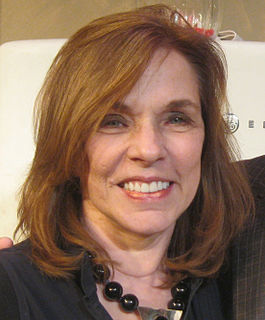A Quote by Robert Scoble
Over at Barb Bowman, she's arguing that we should turn off Facebook's tracking of ads. I totally disagree; those trackers make newsfeed filtering work better and potentially could help bring me better ads, which improves my life.
Related Quotes
An electronic paper has infinite space because you can bring forth as much content as a reader wants. And the resolution of ads is very high. And when you touch the ad you can interact with the advertiser and the paper will take you to the advertiser's Web site and you can get more information. So ideally there should be a better connection between the ads you're shown and what you're actually interested in.
When you're reading a newspaper and you're seeing ads on the page, it's not kind of invasive. Like, it's on the page next to the article. You can look at it or not. You can turn the page when you're ready. On the internet, the ads - many of the ads - just are so controlling. They insist that you see them.
Targeted ads, I think, are useful because I don't want to see all the crap. I'm not interested in buying a Mercedes Benz, but I am interested in buying a new MacBook Air. So if organizations like Facebook can actually make the ads more relevant to me, if they know what I am interested in, I have no problem with that.
No. You can't. And I can't do anything either, about my life, to change it, make it better, make me feel better about it. Like it better, make it work. But I can stop it. Shut it down, turn it off like the radio when there's nothing on I want to listen to. It's all I really have that belongs to me and I'm going to say what happens to it. And it's going to stop. And I'm going to stop it. So. Let's just have a good time.
I see The Gap ads as being a great example of how branding has changed. Those Gap campaigns are pop culture. They've been incredibly powerful. They have had the kind of effect on culture that a hit band has. Just look at The Gap's Khaki swing ads, which were music videos. They had this tremendous impact on the industry - suddenly everything started looking like Gap ads and it became difficult to know who was co-opting whom and who was creating culture.


































